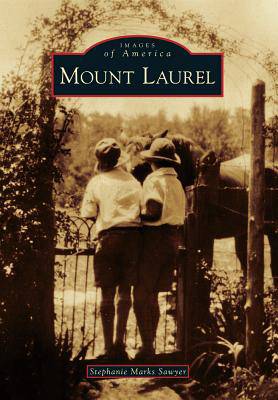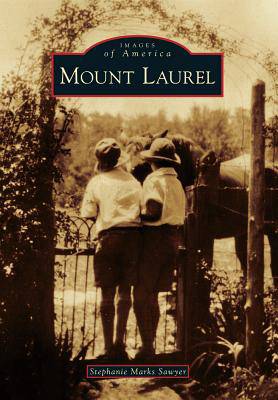
- Afhalen na 1 uur in een winkel met voorraad
- Gratis thuislevering in België vanaf € 30
- Ruim aanbod met 7 miljoen producten
- Afhalen na 1 uur in een winkel met voorraad
- Gratis thuislevering in België vanaf € 30
- Ruim aanbod met 7 miljoen producten
Zoeken
Omschrijving
Settled in 1688 by the Evans family, Mount Laurel originally contained small hamlets like Hartford, Masonville, Fellowship, and Springville. During the 19th century, African Americans established the enclaves of Colemantown, Little Texas, and Petersburg, which served as stops along the Underground Railroad. An abolitionist named Dr. William Still, known as the black doctor of the pines, is buried in the Colemantown Cemetery. Situated east of the Delaware River in scenic Burlington County, Mount Laurel's farmers regularly trucked their produce to the Campbell's Soup Company and shipped their produce to market either by steamboat on the Rancocas Creek or by the Camden & Burlington County Railroad. Through photographs that illustrate the transformation of the area's historical roadways into highways and the residential development of its long-standing farms and peach and apple orchards, Mount Laurel showcases the rich agricultural and cultural heritage of this Burlington County community.
Specificaties
Betrokkenen
- Auteur(s):
- Uitgeverij:
Inhoud
- Aantal bladzijden:
- 128
- Taal:
- Engels
- Reeks:
Eigenschappen
- Productcode (EAN):
- 9781467121620
- Verschijningsdatum:
- 7/07/2014
- Uitvoering:
- Paperback
- Formaat:
- Trade paperback (VS)
- Afmetingen:
- 165 mm x 238 mm
- Gewicht:
- 312 g

Alleen bij Standaard Boekhandel
+ 69 punten op je klantenkaart van Standaard Boekhandel
Beoordelingen
We publiceren alleen reviews die voldoen aan de voorwaarden voor reviews. Bekijk onze voorwaarden voor reviews.











